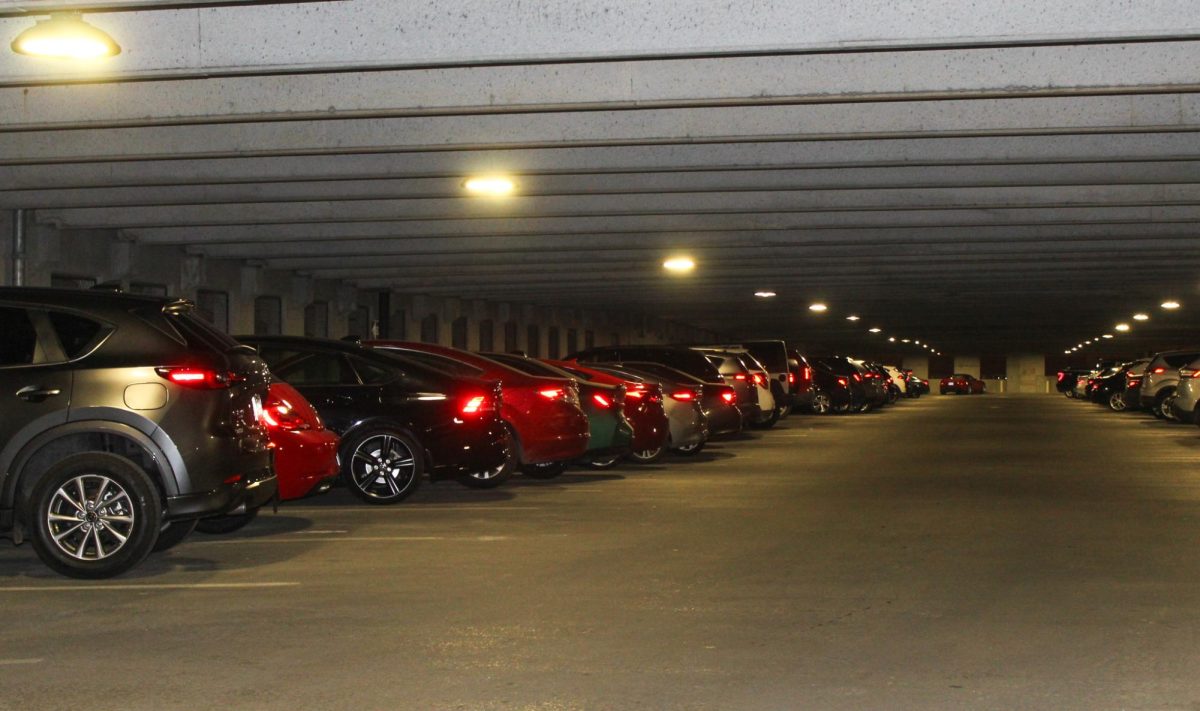When Timothy Love arrived at the University of California, Berkeley as an undergraduate student, he considered himself ignorant, bigoted and prejudiced against the LGBTQ community.
Love, now a first-year doctoral student studying English at MU, said he moved past his prejudices after constant exposure and education about diversity.
“I realized through education and through exposure that they were human, that they were just like me,” Love said.
Love was one of four students who spoke about a culture of respect as part of a student panel on diversity at the UM System Board of Curators meeting Friday morning. Chuck Henson, interim vice chancellor for inclusion, diversity and equity, introduced the panel, which discussed with the board ways to improve the campus climate.
>“My tuition doesn’t pay for the racism, the homophobia, the hypermasculinity that I have to encounter every day on this campus,” Panelist Kelcea Barnes said.
The panel also included Jasmine Morgan, a junior studying health sciences; Sean Joy, a graduate student working toward a master’s degree in higher education administration; and Kelcea Barnes, a junior studying political science.
Love, Morgan and Barnes are black. Joy, who is white, said he is a member of the LGBTQ community.
The students spoke first on their own experiences with discrimination.
“My tuition doesn’t pay for the racism, the homophobia, the hypermasculinity that I have to encounter every day on this campus,” Barnes said.
Joy emphasized the importance of acknowledging privilege, specifically his own as a white male, in order to move forward and understand others. This point is particularly relevant for the current board: After former curator David Steward [resigned from his position Monday](https://www.themaneater.com/stories/2016/2/1/board-curators-announces-resignation-curator-david/), the board is now comprised of five men and one woman, all of whom are white.
“When we hear the word ‘privilege’ or ‘systemic oppression’… we hear these words, and we often put up a gate,” Joy said.
In their first question, the curators asked about a diversity course requirement that Love had mentioned in his opening remarks. The Faculty Council Diversity Enhancement Committee proposed [such a requirement](https://www.themaneater.com/stories/2015/12/8/diversity-course-requirement-changed-student-cours/) in September. Student group Concerned Student 1950 has also asked for mandatory “comprehensive racial awareness and inclusion curriculum throughout all campus departments and units.”
“We are in a position right now to where we can prevent a future cop, a future police officer, from killing a young black male through education,” Love said.
Love suggested that there should be a course series comprised of two courses that collectively address diversity issues.
“I am currently fighting (for a diversity requirement), and I will continue to fight this until we coincide our intentions with successful diversity course requirements that have been going on in this country for years,” Love said.
Another issue the panel examined was the lack of communication between the board and students. Curator John Phillips wanted to know how aware students were of efforts by the curators to address campus climate.
“Do we know what you are doing? We don’t,” Love said. “When we hear nothing from you in public … we feel that we have no other alternative that you are withholding information or that you are incompetent.”
In interim UM President Mike Middleton’s address to the curators, he touched on the progress of the different initiatives. In November, the curators voted to established a Chief Diversity, Equity and Inclusion Officer for the entire system. Three candidates will be on campus next week [for public forums.](http://www.umsystem.edu/president/cdo_search)
Several panelists encouraged the curators to visit the different UM System campuses and have face-to-face discussions with students. Morgan said that dialogues are in-person.
“It’s more than us sitting here having these conversations,” Morgan said.
Love specifically mentioned interim Chancellor Hank Foley’s [State of the University address,](https://www.themaneater.com/stories/2016/1/27/interim-chancellor-hank-foley-delivers-first-ever-/) in which he said Foley failed to mention the events of last semester regarding race relations. However, Foley did discuss recruiting more faculty of color.
“We are taking steps to make matters of diversity, inclusion and social justice a real priority — not just because it’s what many of you have asked us to do, but because it’s the right thing to do,” Foley said in his address. “We are not seeking to be colorblind or homogeneous; quite the opposite. What we are seeking is for all of us to be equal while at the same time we maintain our differences.”
The panel also discussed the role of the board. Curator John Phillips said the curators’ roles are somewhat limited beyond powers of appointment. He also said that at a different meeting, the board should discuss their role in relation to the roles of other administrators. Faculty Council is currently exploring [a proposal](https://www.themaneater.com/stories/2016/1/28/faculty-council-eyes-proposal-examine-um-system-re/) to reexamine the relationship between MU and the UM System.
“Perhaps it’s time to change your job description and go above and beyond what you’ve always done,” Love said. “If there are still no policies in place after all these months, then we have the right to be angry.”
Moving forward, the panel and the board both agreed that there needs to be more communication between the administration and students.
“We have to work together; we have to communicate,” Joy said. “We have to be brave enough to have those conversations.”













